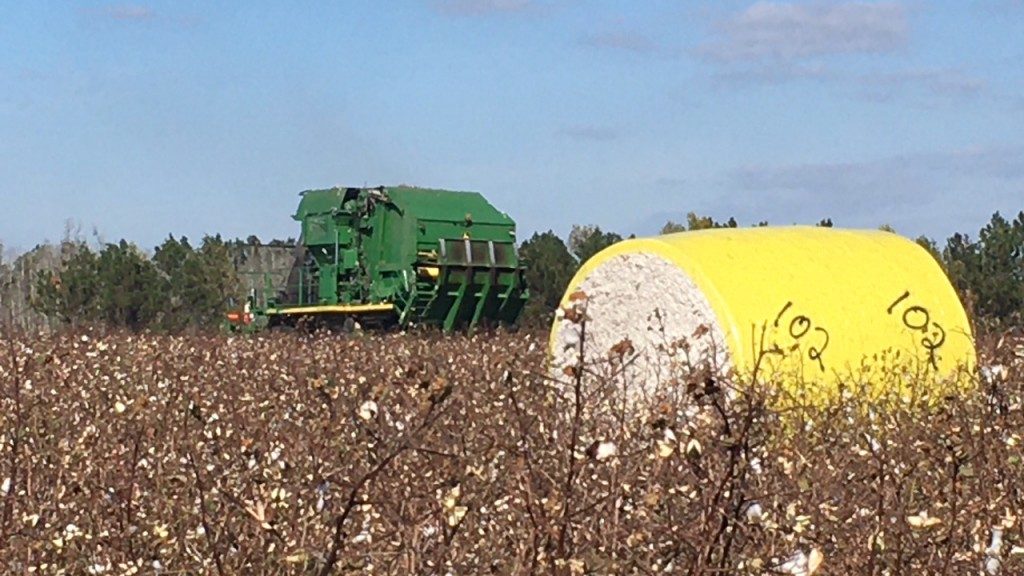Simer Virk and Scott Monfort
With peanut harvest approaching, growers will start digging peanuts soon across most of the
state. Along with considering when is the right time to dig peanuts, proper setup and operation
of peanut digger-shaker-inverter is also important to minimize harvest losses and to ensure
optimal equipment performance and efficiency during harvest. Below are few considerations
for growers to keep in mind when digging peanuts to prevent any mechanically induced yield
losses due to improper digger setup and/or operation:
• Using an RTK Guidance system/Auto-Steer on the tractor while digging peanut helps in
maintaining the digger path directly over the row center or over the planting path and
results in approximately 10% reduction in yield losses compared to when digging peanuts
with a tractor without an auto-steer system.
• Before beginning harvest and making any adjustments specific to the harvest conditions,
inspect the digger carefully for any broken, bent or missing parts as well as the sharpness of
the blades. Dull blades fail to cut the tap root resulting in dragging roots or dislodging pods
from the plant.
• Make sure that tire pressure in the tractor tires as well as the rear gauge wheels on the
digger is adequate and same in both tires. Also check if both tires are the same size.
• Adjust the digging angle (and therefore depth) by adjusting the length of the top link on the
digger. Digger blades should be set at a slight forward pitch and at the depth where they cut
the tap root just below the pod zone. Both an excessively shallower and deeper depth of
the digger blade can result in significant digging losses.
• Blade angle/depth is also dependent on soil type and texture. Any considerable change in
soil type within or among the fields will also require a change in blade angle/depth
adjustments as clay soils usually need a more aggressive angle whereas sandy soils require a
less aggressive blade angle.
• Digging speed should be optimized based on the prevalent in-field conditions at harvest.
Generally, the optimal ground speed for digging peanuts is between 2.5 and 3.5 mph.
Speeds above 3.5 mph can result in an increase in digging losses and therefore should be
avoided.
• Set the rattler conveyor speed to match or just slightly above the forward travel speed of
the tractor while digging peanuts. Conveyor speeds slower or too fast than the tractor
speed can both result in increased pod losses.
• The conveyor depth should also be adjusted where it picks up vines with its teeth just
clearing the soil. Additionally, if needed, adjust the knocker wheels up or down to regulate
the amount of shaking where is enough to remove the soil from the vines.
Remember, properly dug and inverted peanut plants will form a uniform, fluffy, well-aerated
windrow with very few pods touching the soil so make sure to keep a close watch on the digger
operation in the field and adjust settings accordingly as and when needed.
A website from UGA Cooperative Extension
Peanut Digger-Shaker-Inverter Setup and Operational Considerations
Posted in: Peanuts
